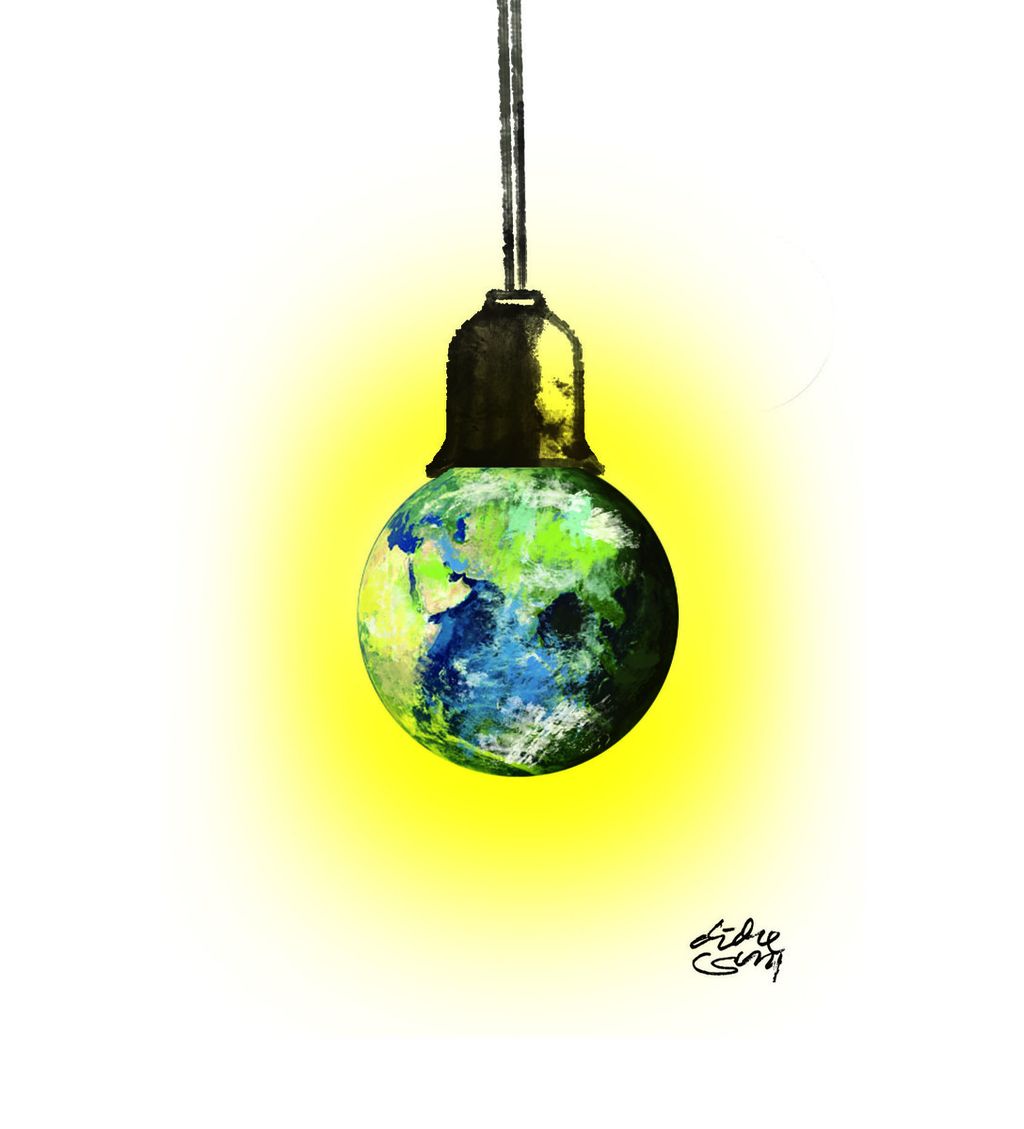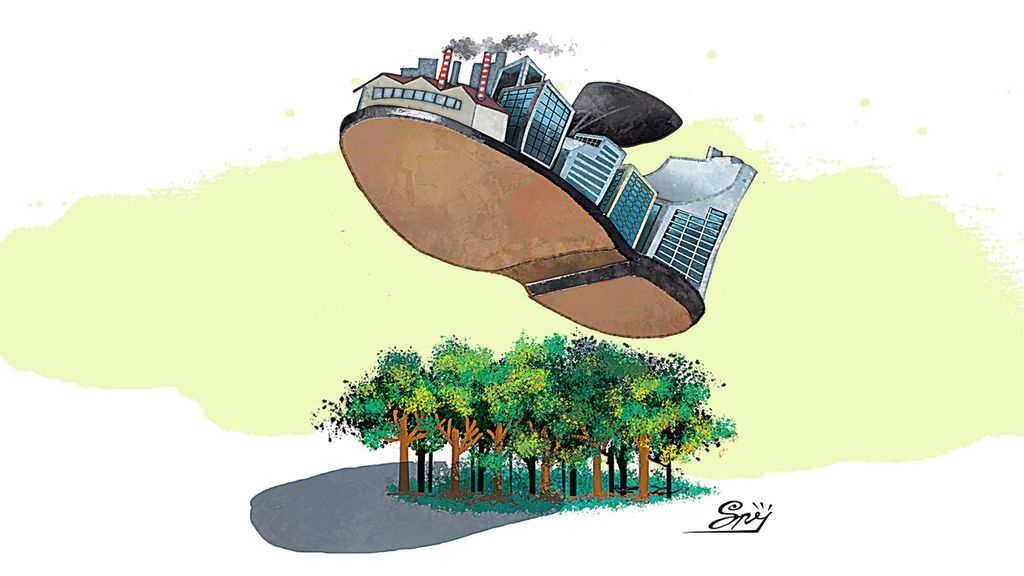Encouraging the Acceleration of Climate Action
Hopefully our presence in COP27 can encourage concrete action, strengthen collaboration based on dialogues to create a better and sustainable world.

If nothing intervenes, I will execute the mandate of President Joko Widodo to represent Indonesia in the 27th Conference of the Parties (COP27) of the United Nations Framework Convention on Climate Change in Sharm el-Sheikh, Egypt, on 6-18 November 2022.
The position of Indonesia in COP27 is quite strategic because apart from being president of the G20, in 2023 Indonesia will be chairman of ASEAN. Previously, through the Enhanced Nationally Determined Contribution (NDC) document, we have proposed Indonesia’s contribution and commitment to lower the emission of greenhouse gasses (GHG) until 2030 by 31.89 percent through its own effort or 43.2 percent with the availability of international aid.
However, in global terms we understand that one year after COP26 in Glasgow there has been no significant global progress. The implementation of various commitments has remained stagnant. On the other hand, the various global challenges currently emerging, such as geopolitical tension, energy and food crises, inflation and recession, have the potential to cause degradation of priorities and commitments to climate change mitigation and adaptation.
More than 230 world scientists from 64 countries affiliated with the Intergovernmental Panel on Climate Change (IPCC) have warned that global warming above 2 degrees Celsius will bring us to a climate crisis with the consequence of never returning to normal conditions. In a natural process, the ice cover in the north and south poles will be further reduced, the frequency and amplitude of extreme weather will increase and biological diversity will decrease.
Also read:
> Indonesia’s Climate Change Diplomacy
Unless the action of GHG emission reduction is carried out in a structured, systematic and massive way, the effort to maintain the earth’s average temperature increase of 1.5 to 2 degrees Celsius until the end of this century will not be fruitful.
As the largest archipelagic country in Southeast Asia, Indonesia is certainly very vulnerable to the impacts of climate change. The Meteorology, Climatology and Geophysics Agency (BMKG) predicts that floods and droughts, rising sea level, shifting rainfall patterns and temperature increase will be occurring more frequently in the next few decades.
These impacts will be experienced nationally and can cost 2.5 to 7 percent of our gross domestic product.
From Glasgow to Sharm el-Sheikh
In order to achieve the target of emission reduction, we have made many attempts.
In the energy sector, for instance, we are proactively developing renewable energy, including the construction of renewable energy power generators under the Electricity Supply Plan of the PLN state electricity company for 2021-2030. We utilize the biofuel B30 that has now also been upgraded to B40, employ co-firing of steam power plants (PLTU) with biomass, as well as biomass and biogas for off-grid power plants.
We also promote energy efficiency, the implementation of electric vehicles and the supporting ecosystem, the utilization of low-emission fuels as well as technology of clean coal and gas.
In order to achieve the target of emission reduction, we have made many attempts.
In the industrial sector, the effort is made by reducing GHG emission directly produced by the production process (Scope 1), reducing indirect GHG emission through energy generators bought by producers (Scope 2), and GHG emission produced by supply and distribution chain activity (Scope 3).
Meanwhile, the various steps already taken in the land-based sector are the reduction of the rate of deforestation and degradation of unplanned and planned land and forests, the rehabilitation of land through greening, replanting and the program for timber-based estates, the management of peatland by maintaining the height of peatland water, the restoration of peatland and the expansion of mangrove zones to cover 756,000 hectares.

The GHG emission reduction in agricultural activity is done through the production and utilization of fertilizers based on nitrogen inhibitors, blue and green manure, the introduction of precision agriculture technology and the recycling of organic waste in agricultural areas.
From COP26 up to early October 2022, Indonesia took important follow-up measures, among others, prioritizing sustainable energy transition on the agenda of Indonesia’s G20 presidency, promoting the Forestry and Other Land Use (FOLU) net-sink 2030 operational plan and launching the country platform for energy transition funding. In the energy sector, we have developed a road map for the achievement of net zero emission (NZE) in 2060.
Several important regulations have also been prepared, including the Presidential Regulation on the Economic Value of Carbon dealing with carbon trading, Presidential Regulation on the Acceleration of New and Renewable Energy Development and the Termination of Steam Power Plant Operation and Presidential Instruction on the Implementation of the Program for Battery-based Electric Motor Vehicles.
Also read:
> Economies of Scale of Electric Vehicles
Yet, in spite of what has been attempted by Indonesia and the world, the existing commitments in the form of NDC of various countries are still far from ideal in achieving the target of 1.5 degrees Celsius. Although all countries have improved the NDC, including Indonesia, there will still be a gap in the target of reducing the emission of 19-23 GtCO2e (gigatons of CO2 equivalent) in 2030. Based on an analysis of the existing commitments there will be an average temperature rise of up to 2.4 degrees Celsius and even the most optimistic scenario will still reach 1.8 degrees Celsius. It means that the average temperature increase will occur even if the GHG emission is lowered.
To ascertain that the temperature rise does not exceed the target already agreed upon, the entire GHG emission still left has to be absorbed. This is known as the concept of NZE. Last year Indonesia proposed a long-term strategy exploring opportunities on the path that leads to the NZE in 2060 or sooner. With regard to the effort to reach the NZE, besides the commitment to achieve the FOLU net-sink, in 2030 we set the target to reach the peak emission of national GHG through energy transition and strive to arrive at the NZE before 2060.
Still, the challenge will certainly be big, especially in maintaining the balance between GHG emission reduction and economic growth, justice and the development of climate resilience. On the other hand, climate change adaptation should also be improved, including adaption for food resilience, ecosystem resilience, water resilience, energy independence, health, urban and rural settlements, as well as specific adaptation for coastal areas and small islands.
Indonesia’s vision in COP27
I regard COP27 as having a very vital role. Indonesia should be able to utilize this momentum, not only to voice its ambition, but also to urge concrete implementation, including the provision of support from developed countries for developing nations.
I will follow up the important message of President Joko Widodo in COP26 Glasgow related to Indonesia’s commitment to keep contributing to the handling of climate change and even contributing speedier to the NZE of the world. But the commitments of Indonesia and other developing countries should be supported by the commitments of developed countries to offer funding and technology transfer. This is important because so far developed nations have gained a lot of profits from activities that produce GHG emission.
As for the funding of climate action, I also consider it necessary for Indonesia to urge developed countries to at least multiply their collective climate funding for adaptation to developing countries with a concrete road map, including the regulation of loss and damages funding to be set up under the UN Framework Convention on Climate Change.

As an Islamic financial expert and practitioner, I wish to encourage the world to utilize the opportunity of green recovery funding and climate action through the Islamic funding and financial scheme. I hope Indonesia can be a leader by giving an example. As president of the G20 and in 2023 chairman of ASEAN, Indonesia can serve as a leader that sets an example.
As president of the G20, Indonesia has managed to push several important points on climate change and energy transition. In energy transition, although no communique was reached, G20-Indonesia succeeded in producing the Bali Compact, which aims to accelerate energy transition to sustainable clean energy.
Our vision as a member of ASEAN is to become a regional leader in accelerating the realization of climate action at a more concrete level. Through partnership with Australia and other Asian countries, Indonesia will also lead the undertaking to reduce GHG emission by speeding up the utilization of renewable energy not only for Indonesia, but also for Asia and nearby regions. Indonesia will be able to play the role of the main source of clean energy for the Asian region. President Joko Widodo and Australian Prime Minister Anthony Albanese have also agreed on partnership in energy transition and climate resilience infrastructure.
Also read:
> Twelve Years to Go Before 1.5 Degrees Celsius
As a developing country Indonesia’s position is also very vital in encouraging all kinds of transition related to climate change, including energy transition, so as to be a just transition. For example, energy transition more often prioritizes the continuity of energy supply for strategic economic sectors, which end in large-scale interests but overlook poor and vulnerable groups.
Energy transition with justice should also observe equality of renewable energy access for poor and vulnerable groups. Access inequality will in turn reduce the opportunity for the poor and vulnerable groups to enjoy the fruit of climate action and only benefit the groups that are better off.
The poor and vulnerable groups also suffer the impact of climate change most, such as hydrometeorological disasters. For this reason, adaptation is needed, including the conception of a social protection program in order to safeguard and support these groups for the avoidance of their welfare risk arising therefrom.
We need to push the world so that climate action will adopt affirmative steps to ensure inclusivity and consider the interests of the poor and marginalized, including the certainty of access to the benefits of climate action.
Indonesia and the world should actively involve communities that have so far been sidelined such as women, the younger generation, forest and coastal inhabitants as well as traditional communities so that they will be an important part of climate action.
Nature is entrusted to us to be managed properly and we all have the obligation to protect it from destruction.
For me, climate action is also the responsibility of religious groups. Nature is entrusted to us to be managed properly and we all have the obligation to protect it from destruction.
As a religious leader and representative of a country with the largest Muslim population in the world, I agree with the statement of Pope Francis through the Encyclical Letter Laudato Si of The Holy Father Francis on Care for Our Common Home in June 2015, that our response to environmental degradation and climate change cannot only be determined by science, technology or economy, but also constitutes a moral obligation.
The statement of Pope Francis serves as a global encouragement to pay increased attention to the issue of protection of the earth as part of the religious teaching in climate action. I wish to invite religious leaders all over the world to oppose climate change, because climate emergency necessitates all of us to take immediate action to save this planet regardless of our faiths.
Hopefully our presence in COP27 can encourage concrete action, strengthen collaboration based on dialogues to create a better and sustainable world.
/https%3A%2F%2Fasset.kgnewsroom.com%2Fphoto%2Fpre%2F2018%2F02%2F06%2Fbfb74116-ce9f-4108-afb9-5fc86ef8eb8e_jpeg.jpg)
Ma'ruf Amin
Ma’ruf Amin, Vice President of the Republic of Indonesia
This article was translated by Aris Prawira.